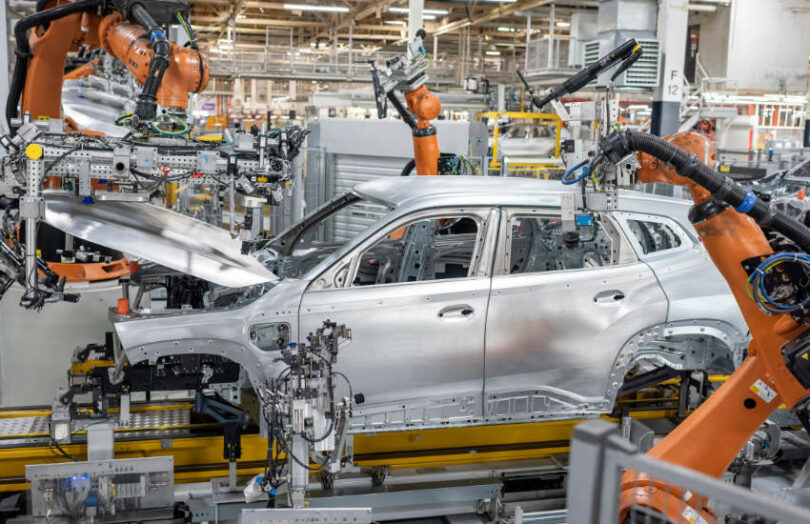In early 2021, Rio Tinto, one of the world’s largest mining companies, unveiled a blockchain sustainability solution for aluminum, START. Today the mining firm and auto manufacturer BMW Group announced a partnership to supply START-tracked aluminum to BMW’s plant in Spartanburg, South Carolina, from 2024.
Blockchain is just one part of the offering, adding traceability so customers and consumers can track the aluminum’s provenance and ESG compliance.
The reduced carbon footprint of the aluminum is based on three factors. Rio Tinto uses hydro electric power in Canada, and it will include up to 50% recycled aluminum. The biggest contribution is a new aluminum smelting technology ELYSIS that claims to emit pure oxygen rather than carbon dioxide during the smelting process. It was developed in partnership with competitor Alcoa with support from Apple and the governments of Canada and Quebec.
BMW is eyeing a potential 70% reduction in CO2 from the Rio Tinto-sourced aluminum. It estimates that a quarter of its supply chain’s CO2 emissions are attributable to aluminum. However, this agreement is for only one factory.
“By using innovative materials, we can reduce our vehicles’ carbon footprint,” said Joachim Post, BMW AG board member. “The agreement to supply low-carbon aluminium is based on several pillars: in addition to hydroelectric power and secondary material, we also want to lead the automotive industry by ramping up our use of aluminium with no direct CO2 emissions from the smelting process.”
Meanwhile, last week Rio Tinto announced a deal with Japan’s Marubeni Corporation to supply START-certified aluminum to downstream manufacturers, including a major Japanese motorcycle manufacturer (likely Yamaha or Kawasaki).
Rio Tinto has other blockchain interests and has participated in transactions on the Contour trade finance blockchain network.
BMW has extensive blockchain-related interests, including PartsChain for its international supply chain.






